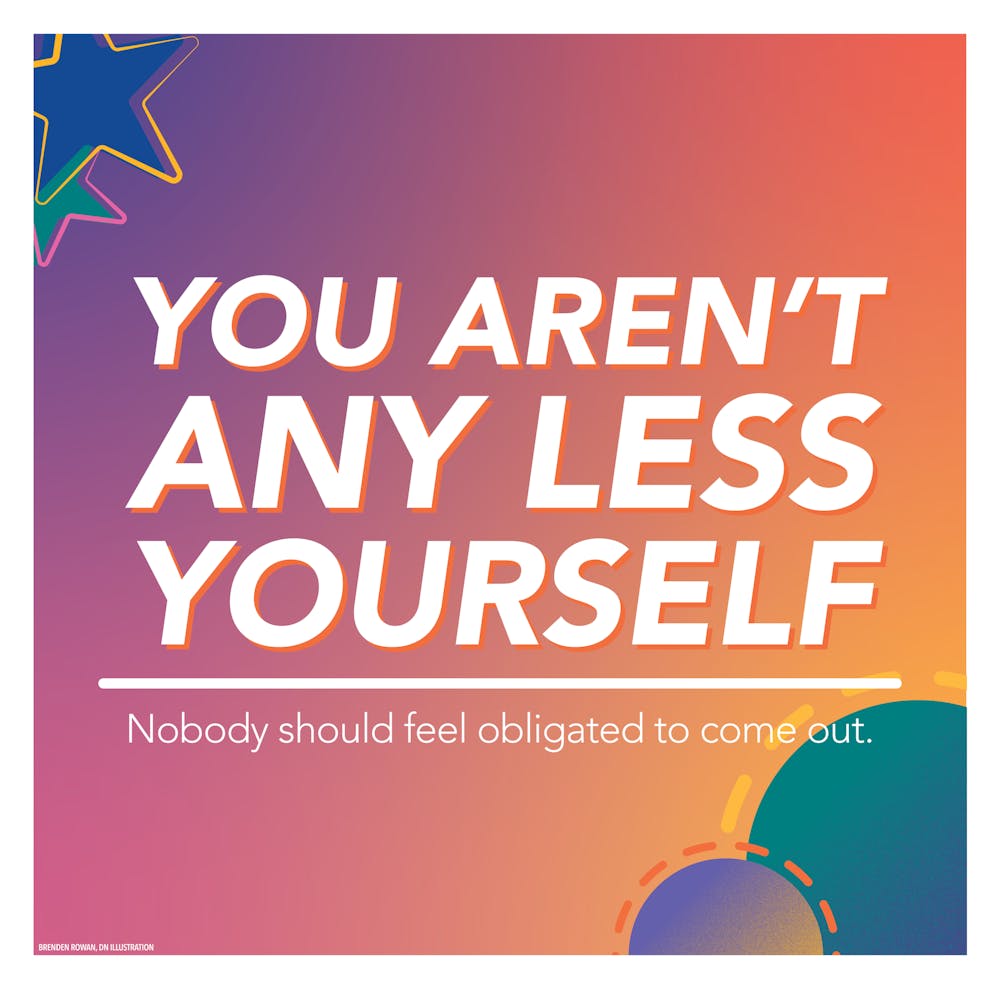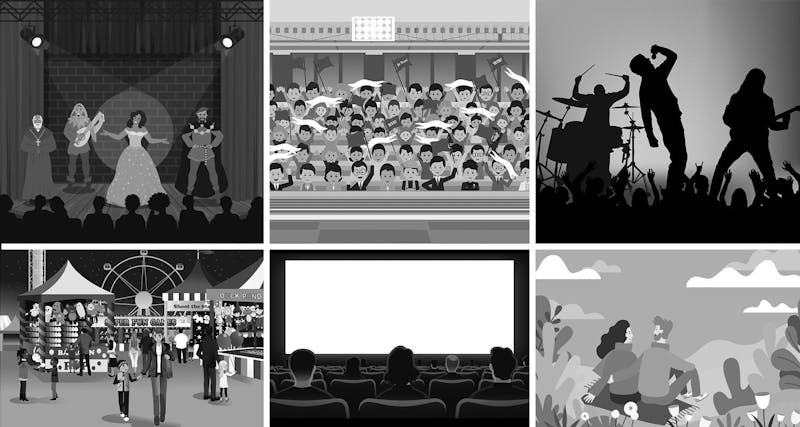Brenden Rowan is a third-year theater major and writes “In the Limelight” for the Daily News. His views do not necessarily reflect those of the newspaper.
The term “coming out” was originally used in the 20th century, referring to a young woman’s entrance into society, according to a research article by D. Travers Scott. The term was appropriated by the gay community to represent a homosexual’s “escape from isolation.”
After months of trying to convince myself that I wasn’t, I came out as gay in eighth grade. I remember sitting on the bus before school one day and saying, “I’m gay” under my breath, just to feel how it sounded.
I got off the bus and met with my group of friends. I decided that the first person I wanted to tell was my best friend, Annie. I was so scared even to say the words. Instead, I texted her the rainbow flag emoji and stared at her. She looked back at me, smiled and texted back a thumbs up.
Whether it be to your best friend, a teacher, your sister or your great aunt that you see once a year, coming out can be hard.
Coming out of the closet is probably one of the scariest things that a person can do in regards to their sexual orientation or gender identity. Giving yourself a label can be affirming and self-validating, especially if you don’t fit into the “societal norm.” It can help you find your community and safe spaces to thrive in.
But what do you do when you don’t have a label? What if you don’t feel comfortable telling people who are close to you? Why do straight people not have to come out?
Nobody should feel obligated to come out.
For me, coming out was something that I felt comfortable doing. I was lucky enough to have family members who have always accepted me for who I am.
The first person I came out to in my family was my grandma. I was raised by my grandparents since I was two, so I always saw my grandma as my mother. I remember having so many conversations with her about being gay, and every conversation would end with me denying any allegations.
A few days after I came out to Annie, I decided to come out to my grandma. She was the most important person in my life, and I needed her to know. I wrote her a letter, left it out for her to read before work one day and just waited by the door, ready for school. After she read the letter, she called me into her bedroom and gave me the biggest hug, telling me that she would love me no matter what.
I grew up in a small, midwestern town where being gay was so far from the norm. I remember only knowing one gay person in my high school when I came out. In my senior year of high school, I remember telling a teacher that I had never had any bad experiences caused by my sexuality.
Looking back, I was wrong. I didn’t know that the things that were happening to me weren’t acceptable.
During my freshman year of high school, my cheerleading coach told our athletic director that I wanted to wear a skirt on the field, and he wouldn’t order me a uniform. A faculty member told a close friend to watch out for me on our senior trip, claiming that I might touch him whenever we were alone in our hotel room.
I was once told that I played a character “too gay” in theater, and that I needed to “man up.” Though I was never blatantly called a slur, I received plenty of hate just because I publicly said two little words: “I’m gay.”
Not Being Ready
The thing about sexuality and gender identity is that it’s not black and white. It's not a scale. I like to think of them like a paint palette. Some people might have a little pink, some yellow and green. Others might have purples, reds and blues.
The Trevor Project suggests thinking about the timing of coming out. Think about whether you are ready to come out or if you need to sit with it. Keep in mind upcoming holidays, and if you are ready for the conversation to come up.
When coming out, think about who you are ready to let know. A few months after I came out to my closest friends, I made the mistake of telling someone whom I couldn’t trust. Within hours, half of my school knew that I was gay. I was caught up in the moment, thinking that this person was an ally, when instead, they just wanted to be known as the person who had a gay friend.
Not being ready to label yourself is a valid reason to wait to come out.
Unsafe Situations
The summer before my senior year of high school, my grandma died due to complications of COVID-19. At the time, she was the only person in my family whom I had come out to.
There were some family members I felt I wasn't comfortable sharing that part of my life with, especially if they were going to respond with negativity. I also had to make the decision of either telling certain people that I was gay or choosing to have a place to live. To this day, there are still some people in my life I refuse to come out to
According to Stony Brook Medicine, you should only come out when you feel safe. For me, I only came out to the people who I knew would be accepting. Coming out to the wrong people not only can ruin lives, but it can completely destroy one's mental health. Being told that your sexuality, or how you identify, is wrong can be detrimental.
Double Standards
During my freshman year, I met a person who identifies as lesbian. She told me that she had never come out to her parents, simply because they had never asked. I stared at her for a solid 30 seconds, trying to wrap my head around what she had just said. She went on to say that straight people don’t have to come out to anyone, so why should she have to?
As I thought about it, I found myself agreeing with her. Why should I have to tell people that I am attracted to someone different than what they expected? To that effect, I realized that coming out inherently sets you apart from other people and marks you as “different.”
Being a part of the LGBTQIA+ community should be normal. We shouldn’t have to make it a big deal.
Coming out can be scary. Some people see it as a milestone or a major plot point in their lives. Others see it as a death wish.
Coming to terms with your sexuality or identity doesn’t rely on you coming out. If you choose not to, it doesn’t make you any less gay, transgender or any less yourself.
Whether you come out or not, know that you are loved and that there will always be a community that will accept you for who you are, no questions asked. Being gay isn’t a choice that we get to make, but coming out is.
Contact Brenden Rowan via email at brenden.rowan@bsu.edu.





The Daily News welcomes thoughtful discussion on all of our stories, but please keep comments civil and on-topic. Read our full guidelines here.